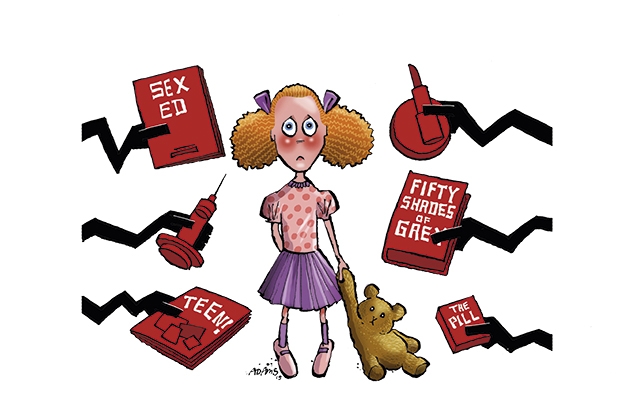[audioplayer src=”http://rss.acast.com/viewfrom22/the-death-of-childhood/media.mp3″ title=”Melanie Philips and Sarah Green discuss the end of childhood” startat=37]
Listen
[/audioplayer]In all the sound and fury about historic sex crimes against children, one crucial factor has been generally ignored. Last week, a review of the agencies dealing with the phenomenon of ‘grooming gangs’ in England said that more than 370 young girls in Oxfordshire had fallen victim to them over the past 15 years, and called for an urgent national debate into these ‘indescribably awful’ sex crimes. But the most shocking and overlooked aspect of the review was that, in Oxford, police and care workers dismissed evidence that girls as young as 11, 12 or 13 were being groomed for sex and repeatedly subjected to brutal sex crimes, intimidation and threats of violence, on the grounds that these were ‘very difficult girls making bad choices’.
Bad choices? For heaven’s sake, these were children! Yet men in their thirties targeting girls as young as 13 were described by police and caring agencies as these children’s ‘boyfriends’.
‘Scores of these professionals used language which appeared at least in part to blame these child victims and view them as adults,’ said the review. So how could such professionals not see them as either children or victims?
This pattern has been repeating itself. From Rotherham to Jimmy Savile and other child sex scandals, police and other agencies dismissed complaints by such girls on the grounds that they were ‘little slags’. These agencies were writing off an entire class of people as low-lifes, whose wretched condition was only to be expected from their debauched behaviour. That in itself was awful.
But the Savile scandal exposed something deeper and more sinister: that countless people connived at what they knew he was doing to these girls, even though some were very young teenagers or younger. That was because his victims were not seen as either children or victims.







Comments
Join the debate for just £1 a month
Be part of the conversation with other Spectator readers by getting your first three months for £3.
UNLOCK ACCESS Just £1 a monthAlready a subscriber? Log in